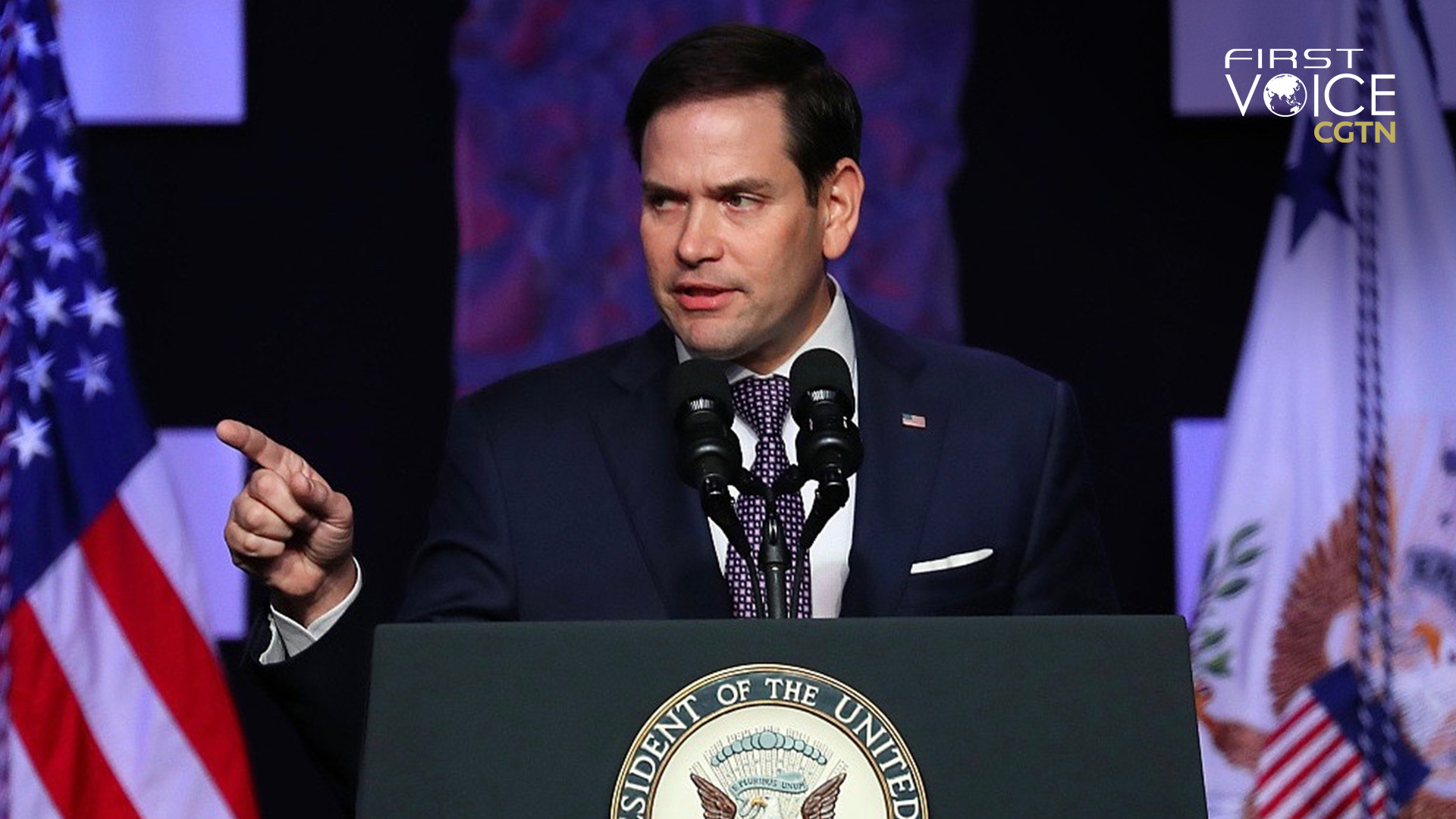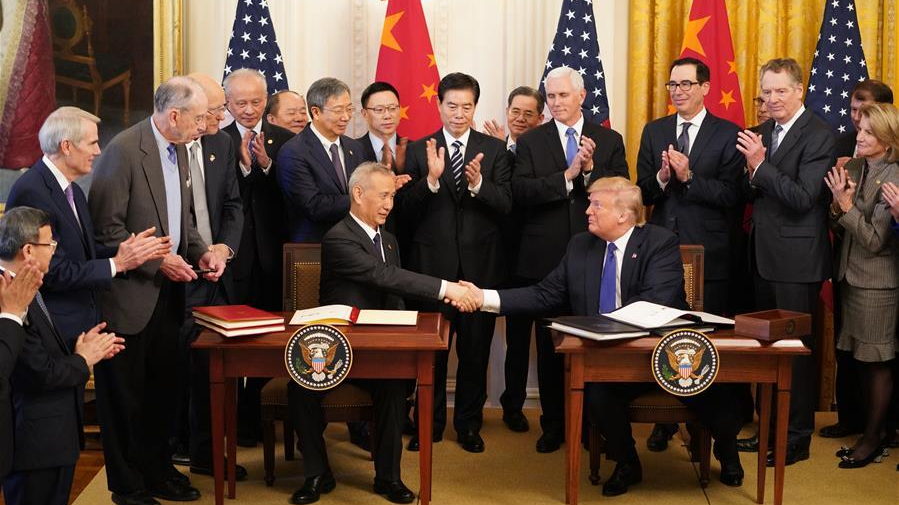
Editor's note: CGTN's First Voice goes beyond the headlines to dissect, examine and analyze hot-off-the-press issues and break down breaking news into simple parts. The daily column offers a Chinese perspective on global current events to help you shape your views on matters that shape your life.
U.S. Senator Marco Rubio has made it clear that he doesn't like the phase one China-U.S. trade deal.
It is reasonable to be critical of the deal. The bottom line is that the phase one deal is a compromise between the two countries. One cannot expect that the conflict between the two largest economies in the world could be resolved with everyone getting all of their wishes. It is an agreement signed so that the two countries could resolve their conflicts enough to end the cycle of tariff escalation and move the relationship forward. It is, by nature, not perfect.
But, being critical and fear mongering are not the same. And Rubio chose the latter. In his opinion piece published on the New York Times on January 17, he showed no intention of hiding his disdain for this deal. He accused the deal of allowing American capitals to flow into Chinese companies that Beijing uses "to surveil Uygurs in Xinjiang." He believed that the American dollars will be used to "serve a Chinese Communist Party intent on undermining America, human rights and religious liberty". He is "warning" people that the phase one trade one deal is going to embolden China in "displacing the United States as the world's economic and military superpower".
There have been more than enough articles, videos and documentaries discrediting these accusations. President Alan Beebe of the U.S. Chamber of Commerce in China called this phase one deal a "win-win-win" situation in which China, the U.S. and the world would benefit from its implementation. He noted that this deal is crucial in building trust between the two countries that is fundamental for them to deal with more difficult questions in the future.
However, this is not the first time that Rubio satanizes China. What deserves more study is Rubio himself. Back in December 2019, CGTN published a feature article detailing Rubio's road to power and his history of "China angst." The article argues that Rubio's Catholic faith could be a reason behind his criticism against China. His "binary sense of morality" could be driving his "crusade against the rising economic powerhouse." But, this sort of pursuit of purity, as noticed in the article, could not be separated from the "general fear of China's rise in U.S. mainstream politics."

U.S. President Donald Trump and Chinese Vice Premier Liu He shake hands after signing the China-U.S. phase-one economic and trade agreement during a ceremony at the East Room of the White House in Washington, DC, U.S., January 15, 2020. /Xinhua Photo
U.S. President Donald Trump and Chinese Vice Premier Liu He shake hands after signing the China-U.S. phase-one economic and trade agreement during a ceremony at the East Room of the White House in Washington, DC, U.S., January 15, 2020. /Xinhua Photo
And he has been riding high on this wave. At the age of 48 with a prominent national profile, Marco Rubio's road to the White House is still open. NYT reports that Rubio has long branded himself as a foreign policy expert. His alignment with the administration's hardline foreign policy has already earned him buzzes about replacing Mike Pompeo as the next Secretary of State. As reported by the Washington Post, a tenure as the chief diplomat of the United States "could only help" him with his presidential aspirations.
But, Rubio isn't just riding his wave of fear. Fear is his only tool to rally the people against China.
Unlike many of his colleagues, Rubio is hardly known for being an expert in any area. His Democratic colleague Dianne Feinstein has a reputation for being deeply involved in the intelligence community for serving on the Intelligence Committee since 2001. Late Republican Senator John McCain was famous as a guru in national security.
What area is Rubio famous for? There seems to be no consensus on this. And there's a good reason for it. According to a Global Times' report in 2019, this self-branded foreign policy expert has sponsored or cosponsored more than 2,400 bills since becoming a U.S. senator in 2010. This means he's sponsoring on average two bills each working day. Global Times reported that on June 11, 2019, he participated in four bills covering a wide range of complex issues like federal firearms control and protection for Central American women and children.
At this rate, it is a tall order for him to have an expertise in a specific area. For him, bills introduced are more for sending out political signals rather than making actual change. He introduced 91 bills and resolutions in 2019, but only 3 bills have become law. In comparison, his colleague Senator Charles Grassley introduced 50 but got seven of them enacted.
Blanket association of China with a rule-breaking, antagonistic image is Rubio's way to mask his own inadequacy in his knowledge of China. The unsubstantial accusations are his only way to "convince" people to agree with his point of view. He can only resonate with people through fear, not truth.
Besides, how could someone who's never visited the country present a truthful depiction of China that's changing on a daily basis?
Script writer: Huang Jiyuan
(If you want to contribute and have specific expertise, please contact us at opinions@cgtn.com.)